Book: Electronic Archiving and Document Management in the Modern Era
Author: Dr. Gabriel bin Hassan Al-Arishi
In an era of accelerating technology and increasing regulatory challenges, traditional methods of document preservation and management are no longer sufficient to keep pace with the volume of data flowing in. This is where the pivotal role of electronic archiving and document management in the modern era comes into play. It is no longer just a regulatory option, but an absolute necessity for both government agencies and private institutions. This is aimed at enhancing efficiency, reducing waste, and achieving transparency and compliance with regulations.
The author begins the book by outlining the fundamental difference between paper archiving and its electronic counterpart, focusing on the gap created by the digital revolution in methods of processing, storage, and retrieval.
Basic concepts in electronic archiving
The author devotes an important chapter to explaining the basic concepts related to electronic archiving and document management in the modern era, such as digital classification, cloud storage, and document management systems.DMS), and international standards such as (ISO 15489).
Al-Arishi explains how digital transformation goes beyond digitizing files, but also encompasses redesigning administrative processes themselves. This highlights the importance of technical and legislative infrastructure, including information security and reliability.
Benefits of electronic archiving for institutions
One of the most prominent aspects discussed by the author is the positive impact of electronic archiving and document management in the modern era on the workflow within institutions. He lists several advantages, including reducing office space, reducing operating costs, and accelerating search and data access processes.
He also points out that digital archiving enables organizations to make decisions based on accurate and immediate data, which enhances overall performance and increases customer and auditor satisfaction.
Legal and regulatory frameworks
Al-Arishi addresses the legal dimension of electronic archiving and document management in the modern era, emphasizing that the preservation of electronic documents does not exempt one from compliance with local and international laws and regulations. He reviews examples of regulations, such as the Electronic Transactions Law, and explains how legal controls ensure the integrity of documents against forgery or tampering. He also highlights the importance of digital signatures and time-stamping.
Stages of implementing electronic archiving
The author points out the necessity of adopting systematic steps when implementing electronic archiving and document management in the modern era. These steps begin with evaluating the current status of the archive, then determining the technical and organizational needs, then choosing the appropriate system, and finally...Employee training and performance monitoring. Al-Arishi warns that resistance to change may be the biggest challenge facing digital transformation, which calls for a well-thought-out change plan.
Challenges and Obstacles to Digital Transformation in Archiving
The author does not neglect to discuss the challenges that may face the implementation of electronic archiving and document management in the modern era, which range from weak infrastructure, lack of cultural awareness, a lack of technical skills, and high initial transition costs. However, he also presents practical and realistic solutions based on international experiences, emphasizing that the right start is sufficient to achieve sustainable results.
Integration with e-governance systems
The topic of electronic archiving and document management in the modern era intersects with broader concepts such as smart government and digital governance. The author emphasizes that archiving is not merely an internal process, but rather part of an interconnected system that includes cybersecurity, big data management, and predictive analytics. He points out that the success of an archiving project depends on integration with other government systems.
The future of archiving in light of artificial intelligence
Al-Arishi concludes his book with a forward-looking view of the future of electronic archiving and document management in the modern era, highlighting the role of artificial intelligence in improving document classification, automated content recognition, and archival data analysis to extract insights. He also discusses blockchain technologies as a tool for protecting documents and ensuring they are not tampered with. According to the author, the future will be more intelligent and connected to self-learning systems.
The importance of training and capacity building
The author emphasizes that the success of any modern electronic archiving and document management project cannot be achieved without human resource training.
The employee is the bridge between the system and the documents. Therefore, enabling them to use digital tools, training them on classification and storage standards, and familiarizing them with advanced systems are essential.
The author proposes designing training programs that take into account different functional backgrounds, with an emphasis on practical application.
Real-world applications and lessons learned
The book presents a number of international and Arab experiences in implementing electronic archiving and document management in the modern era, and analyzes their successes and failures in a scientific manner. For example, it highlights the archiving experience in some Saudi government agencies and how it contributed to accelerating administrative procedures. It also discusses the experiences of Malaysia and Singapore in establishing national digital archiving centers, which served as a model for the region to emulate.
The relationship between archiving and information quality
The author links electronic archiving and document management in the modern era to the quality of data and information, noting that electronic systems not only improve access to data, but also ensure its accuracy, timeliness, and coherence. Every document processed electronically undergoes verification, review, and documentation stages that make it a reliable source of information.
Ultimately, Dr. Jibril bin Hassan Al-Arishi's book, Electronic Archiving and Document Management in the Modern Era, is a comprehensive reference for anyone working in the field of document management or seeking to transform their organization into a more efficient and sustainable digital environment.
The book not only presents theoretical concepts but also offers practical solutions, putting the reader on the right path to building a robust, integrated, and secure electronic archive.
You can download the book Electronic Archiving and Document Management in the Modern Age directly from here.
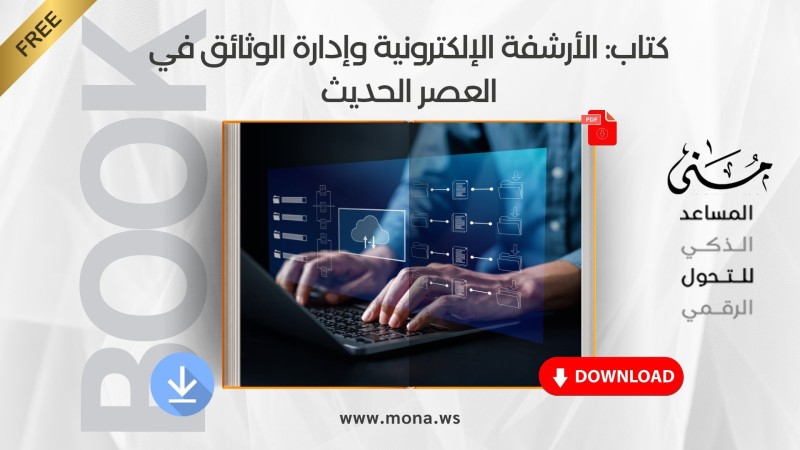 كتاب: الأرشفة الإلكترونية وإدارة الوثائق في العصر الحديث
كتاب: الأرشفة الإلكترونية وإدارة الوثائق في العصر الحديث
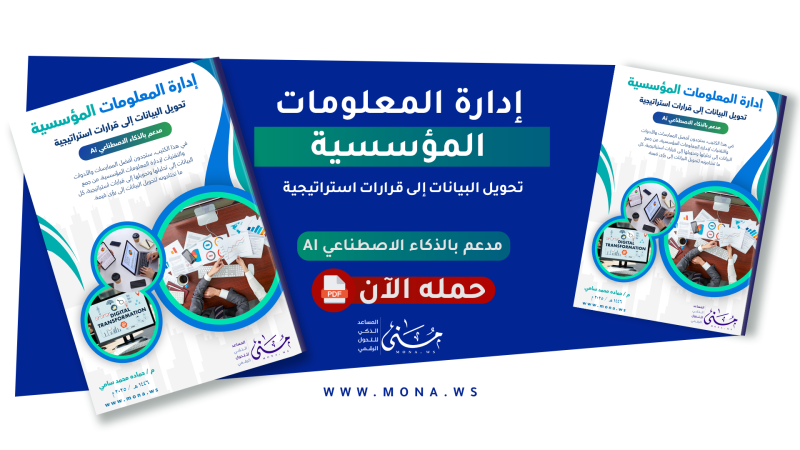
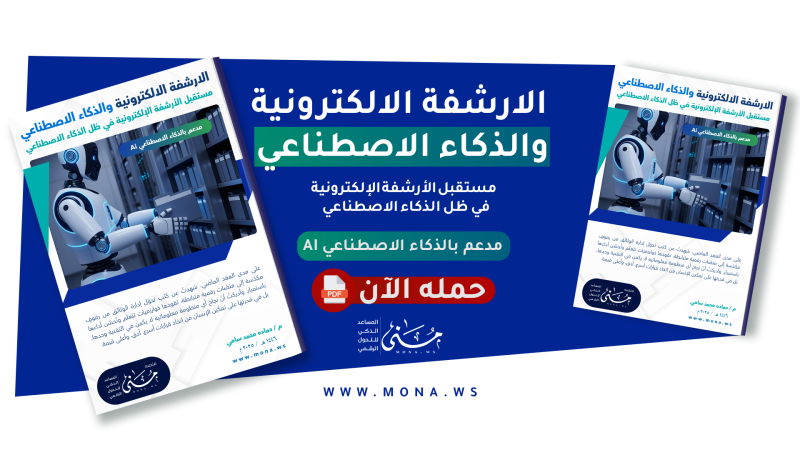
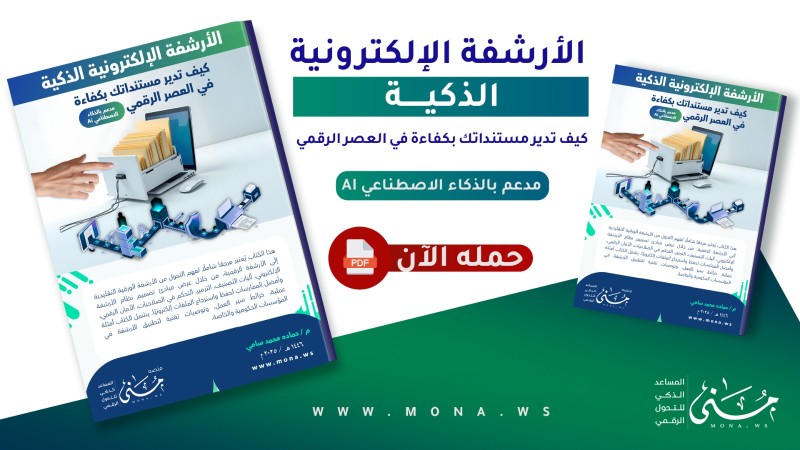
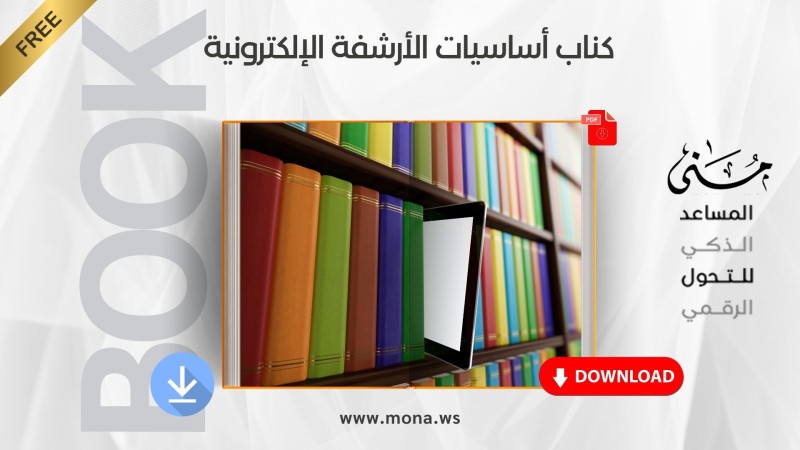
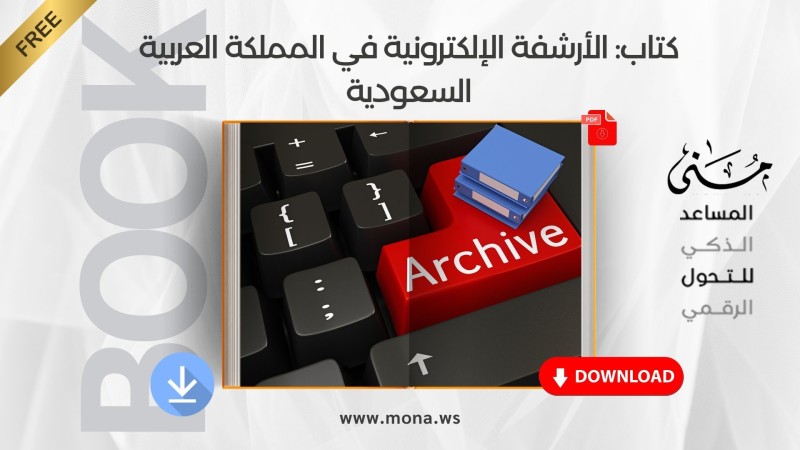
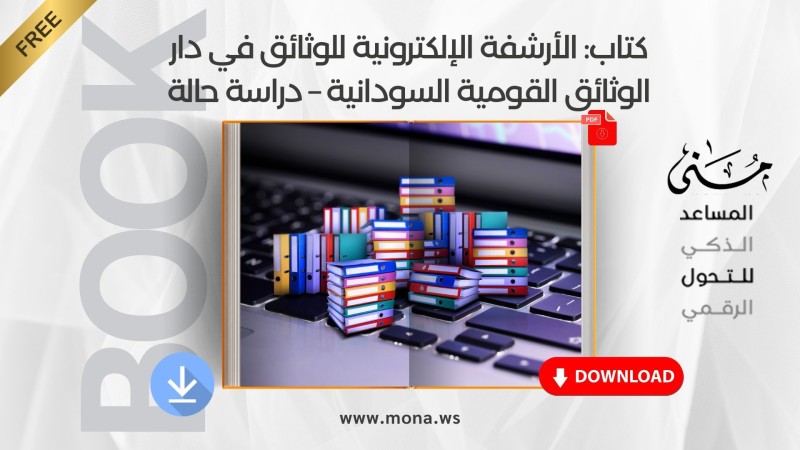
Comments
Add New Comment